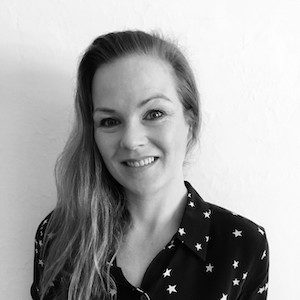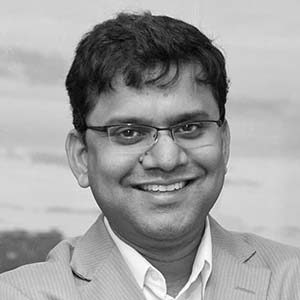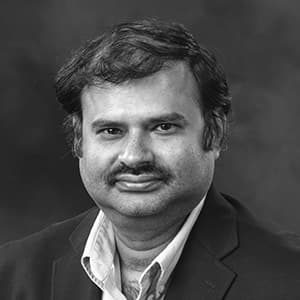
Fragile Earth 2025
Fragile Earth: Innovative AI For Climate Risk Mitigation.

Thank you to everyone who joined us for a great workshop at KDD '25!
Since 2016, the Fragile Earth Workshop has brought together the research community to find and explore how data science can measure and progress climate and social issues, following the framework of the United Nations Sustainable Development Goals (SDGs).
The Fragile Earth Workshop was one of three workshops associated with the planned Earth Day event at KDD 2019 (organized by our OC members, Shashi Shekhar and James Hodson), provided keynotes and panels for Earth Day in 2020, and has been a recurring workshop at the annual KDD conference for the past seven years. We continue this tradition in 2025
Fragile Earth 2025: August 4th, 2025
KDD Conference August 3-7th
Toronto, Canada
Contact:
Since 2016, the Fragile Earth Workshop has brought together the research community to find and explore how data science can measure and progress climate and social issues, following the framework of the United Nations Sustainable Development Goals (SDGs). Over the years, Fragile Earth workshop has focused on SDGs. This year we also focus on an additional aspect: Generative and Foundational Models for Sustainable Development. The generative and foundational models in the context of climate change and sustainable development present significant potential and intricate challenges.
In light of these challenges, this year's Fragile Earth workshop focuses on innovative artificial intelligence solutions for climate risk mitigation. We seek submissions addressing critical areas such as wildfire prediction and management, landslide risk assessment, biodiversity monitoring and conservation, urban climate resilience planning, and ecosystem vulnerability assessment. Particular emphasis is placed on developing real-time disaster prediction and early warning systems, AI-powered environmental monitoring, and adaptive urban planning tools.
Accepted submissions will have papers and videos archived on the Fragile Earth website, but will not be included in the official KDD Proceedings. Authors will not be asked to assign copyright or rights to future submission elsewhere by participating in this workshop.
Program Overview
Program Overview
Auroop Ganguly: Opportunities and challenges for AI and data-driven sciences to generate stakeholder-relevant climate projections at scale
This presentation explores challenges in generating actionable climate projections for cities and infrastructure. Traditional downscaling often lacks falsifiability, and internal climate variability complicates predictability. The talk introduces big and small data issues in earth systems science, along with computational and complexity barriers at decision-relevant scales. It highlights opportunities to combine physical process understanding with data-driven methods such as machine learning, nonlinear dynamics, and network science. Recent advances in trustworthy and hybrid AI are examined. Case studies illustrate successes and failures in research, entrepreneurship, and outreach, addressing scientific uncertainty, policy needs, and pathways forward for impactful climate decision-making.
Call for Papers
Fragile Earth: Innovative AI For Climate Risk Mitigation is a workshop taking place as part of the ACM’s KDD 2025 Conference on research in knowledge discovery and data mining and their applications (August 3-7, Toronto, Canada). The workshop will be a full-day event on August 3, 2025 which is part of a KDD “Fragile Earth” Workshop series, running since 2016.
Submission is now open, and we are seeking:
full papers (up to 8 pages)
position papers (up to 4 pages), and
policy notes (up to 2 pages).
Accepted submissions will have papers and videos archived on the Fragile Earth website, but will not be included in the official KDD Proceedings. Authors will not be asked to assign copyright or rights to future submission elsewhere by participating in this workshop.
We will give priority to work that clearly measures and shows potential for impact in achieving the United Nations Sustainable Development Goals (SDGs) in an open and equitable manner.
SUBMIT HERE: OPENREVIEW-SUBMISSION-LINK
All submissions should use the standard ACM Proceedings templates.
DEADLINE: July 7, 2025, 11:59:59 PM Anywhere on Earth (AoE)
Notification Date: July 14, 2025
List of Topics
The Workshop will target both methodological and applied research agenda within these areas of investigation.
The methodological topics of interest are relevant areas of KDD, including but not limited to:
generative and foundational models in the context of climate change and sustainable development
diverse datasets and knowledge integration
secure and trustworthy generative and foundational models
the integration of physics into data-driven modeling and the use of machine learning, generative and foundational models to enhance physical simulations
model explainability, uncertainty quantification, privacy and fairness questions in environmental modeling
integration of symbolic and neural machine learning for accurate and interpretable machine learning, generative and foundational models
causal learning in complex physical world as foundations for model trustworthiness
sustainable computing paradigms for generative and foundation models
ML applications at low-energy edge devices
frameworks for helping the scientific and KDD communities to work together
combining predictive and prescriptive tasks
multi-agent systems for participatory modeling that integrate stakeholders into knowledge creation and decision processes
geometric and topological deep learning for environmental modeling and assessment of environmental justice
Domains of interest include but are not limited to:
wildfire analytics: detection, prediction, and discovery; wildfire smoke and environmental fairness
Disaster resilience – urban climate resilience planning, landslide risk assessment, ecosystem vulnerability assessment, biodiversity monitoring and conservation
food security, sustainable agricultural practices and supply chains, ecosystem restoration, water management, sustainable energy, climate action and adaptation and, socioeconomic equality, and disaster resilience
wildfire analytics: detection, prediction, and discovery; wildfire smoke and environmental fairness
innovations in data science and predictive modeling, applied to earth sciences
investigations centering sustainability, including but not limited to environmental justice
data-informed climate change and resource management policy discussions
carbon removal technologies
easily usable and publicly available data+model+frameworks (possibly challenge problems) based on satellite/drone data to monitor and predictively model the fragile earth
natural catastrophes under a changing climate ranging from improved modeling to development of resilient infrastructures
economic/quantitative characterization of climate change risk and associated incentives towards policy/decision making.
Any other topics related to the themes of the workshop are welcome!
The papers from last year can be found here:
Organizers

Naoki Abe

Kathleen Buckingham

Yuzhou Chen

Emre Eftelioglu

Auroop Ganguly

James Hodson

Ramakrishnan Kannan
Share this Page
Get Involved
Join our efforts to unlock AI’s potential towards serving humanity.
Support us
Become a Partner
Volunteer with us
Newsletter


